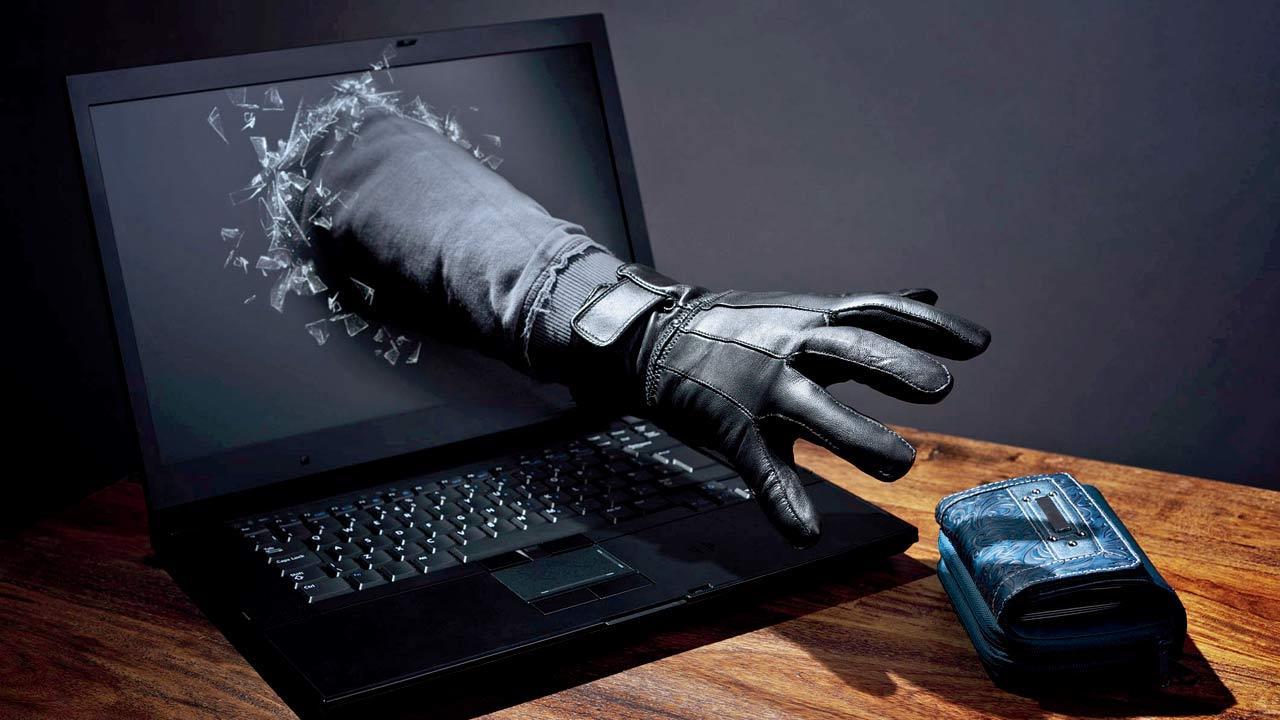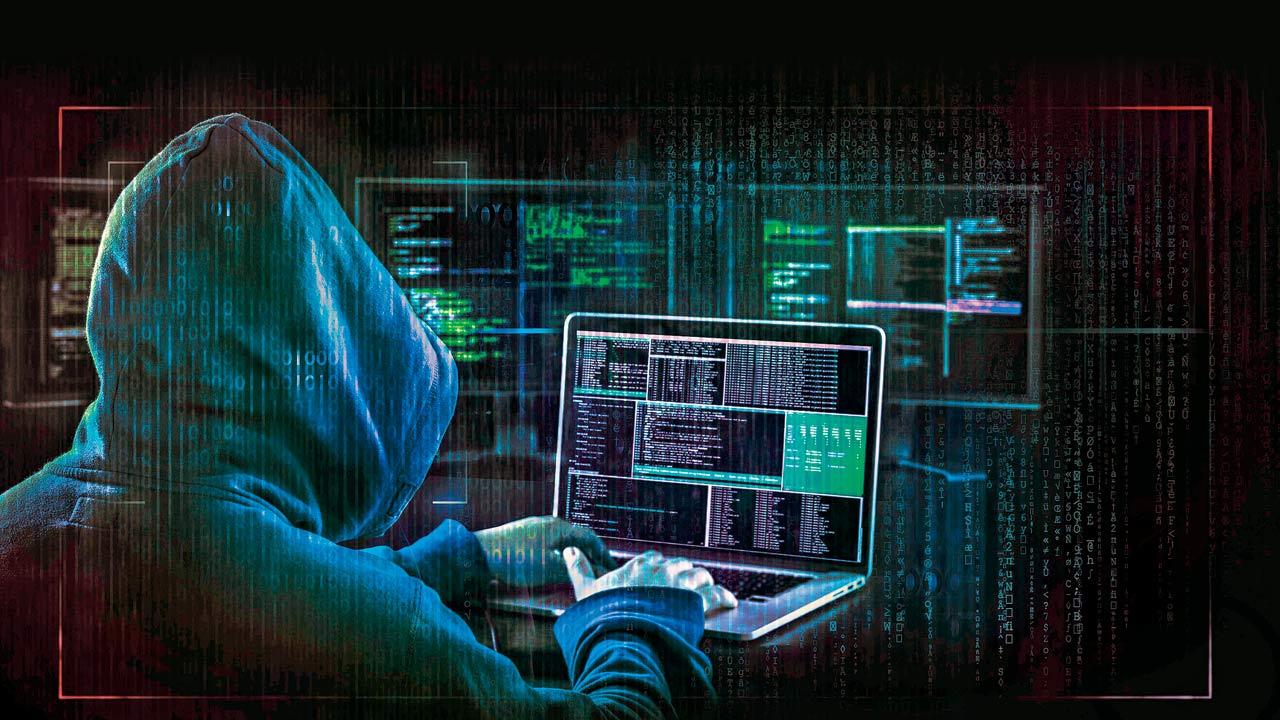Officers say poor recovery of funds in online frauds is largely due to routing of money through multiple accounts in a matter of minutes

Legal experts urge cops to use non bailable sections of BNS. Representation pic/iStock
Mumbai has witnessed cyber frauds exceeding Rs 1,000 crore over the past 10 months, despite having five specialised cyber police stations. Detection and recovery rates remain low, between 15 and 25 per cent, with offenders often securing bail within 25-35 days and subsequently committing similar crimes in other states.
ADVERTISEMENT
Cybercrime presents a different challenge compared to regular crimes. In traditional cases, we often identify the suspect early in the investigation. In cyber fraud cases, the perpetrator operates behind a digital wall, making it difficult to determine their identity or location. By the time we trace their details, the situation often changes as the money is routed through multiple accounts. Despite these challenges, we are doing our best, and as you can see, the detection rate has improved over the past few years. We are committed to making further progress,” said DCP Datta Nalawade of the Cyber Cell.

Cybercriminals often secure bail within a month. Representation pic/iStock
Senior cyber lawyer Prashant Mali believes there are multiple reasons why detection and recovery rates remain low, despite the extensive machinery in place in Mumbai. He highlights a critical gap: “The arrests focus on mule account holders rather than the masterminds and key players behind cybercrimes. Unless we catch the real perpetrators, we won’t be able to stop them. Mule account holders are merely beneficiaries, receiving only a small sum. They are arrested, get bail, and then resume their activities in other states and cities. Simply arresting mule account holders and blocking available funds is not enough to deliver justice to victims. For example, the 1930 helpline shows the amount blocked, but is there data showing that the money is actually returned to the victims? That information is unavailable,” he added.
“Our efforts aim to put every individual involved in cybercrime behind bars, even those who merely provide their bank account numbers. The fact is, these individuals are aware of the fraud and participate to gain some benefit. In most cases, the primary culprits are operating from abroad, and we have completed the necessary formalities through official channels to bring them to India to face the law,” an officer of the Cyber Cell said.
Highlighting the challenges, Mali added, “In my practice as a cyber-lawyer, I see that if an amount is blocked by the police via helpline 1930 for one account, there are often four to five other police stations from different states claiming the same funds. Effectively, banks are not releasing money to the victim despite court orders. Bank officials come to the court stating that there are multiple court orders and police requests for the same money. This happens because the same criminal has committed crimes under various jurisdictions. In the end, the victim goes through further pain trying to recover their money. Until we start charging these offenders under organised crime statutes, they will continue because they don’t fear the law.”
Mali emphasised the need for a centralised database of habitual cyber offenders, suggesting that each time an individual is arrested, the police should present their criminal record to the court to prevent easy bail. “Details of repeat offenders should be shared with mobile operators and banks to deny them access to loans and credit cards. Police should also track immediate family members of cybercriminals to deter them from continuing their crimes. Such measures are essential, as cybercrime is now seen as a lucrative career for criminals.”
Challenges faced by cyber cops
According to a cyber cop investigating extortion scams linked to Mewat (now Nuh) in Haryana, certain regions in India, like Mewat, have become hubs for cyber fraud, with multiple gangs operating. “I went undercover as a villager,” the officer shared. “The locals know these young criminals are at work, and the economy relies heavily on cybercrime, much like Jamtara. Villagers resist arrests by blocking roads and throwing stones. The district spans three states—Rajasthan, Uttar Pradesh, and Haryana—so the suspects get tipped off and shift locations quickly. I stayed for two weeks and returned empty-handed, spending over R2 lakh on logistics.”
Another officer noted that many cybercrime masterminds remain at large due to their operations abroad. “In a recent stock market fraud, suspects were based in Dubai, Hong Kong, Mauritius, and China,” he said. “While we’ve arrested some handlers in India, key players in scams like ‘Like and Earn’ or ‘Task’ frauds remain outside our reach.” A third officer explained the challenge of tracking cybercriminals who operate “behind a digital wall.” “We send letters to banks to trace accounts used in fraud, only to find they were opened with forged documents or unaware individuals’ KYC data. This makes tracking perpetrators difficult, as even the SIM cards often belong to others.” In many cases, he added, it takes months to gather details to act.
Mumbai police data show that over the past four years, more than 30,000 numbers involved in cyber fraud have been blocked with the help of the Department of Telecommunications.
Lack of motivation for cybercops?
Mali highlights a lack of motivation among the cybercops. “Cyber officers need incentives similar to those in the Anti-Corruption Bureau,” he said. “They face constant travel challenges when pursuing cybercriminals across states, yet funding for travel and daily allowances isn’t provided promptly. States should ensure tickets are available, enabling officers to focus on apprehending suspects without financial stress.”
Invoke Section 111 of BNS
Legal experts are urging Mumbai police to use Section 111 of the BNS Act, which treats cybercrime as organised crime, making it tougher for offenders to get bail. “It’s time to instil a stronger fear of the law in cybercriminals, much like the Maharashtra Control of Organised Crime Act (MCOCA) did for gangsters. Section 111 needs to be applied,” said senior cyber lawyer Prashant Mali.
In July, former Maharashtra DGP Rashmi Shukla told mid-day that without strict provisions, cybercriminals often secure bail within a month. She noted that the BNS Act’s severe penalties, such as life imprisonment or a Rs 10 lakh fine, could deter repeat offences. Although the BNS Act came into effect in July, Section 111 has rarely been invoked in Mumbai. “We’re reviewing cases to invoke Section 111 during charge filing,” said a senior officer. Mumbai police data shows an increase in cybercrime detection rates, rising from 8.5 per cent in 2020 to 23.5 per cent in 2024, with annual cases fluctuating but showing gradual improvement in detection rates.
 Subscribe today by clicking the link and stay updated with the latest news!" Click here!
Subscribe today by clicking the link and stay updated with the latest news!" Click here!







